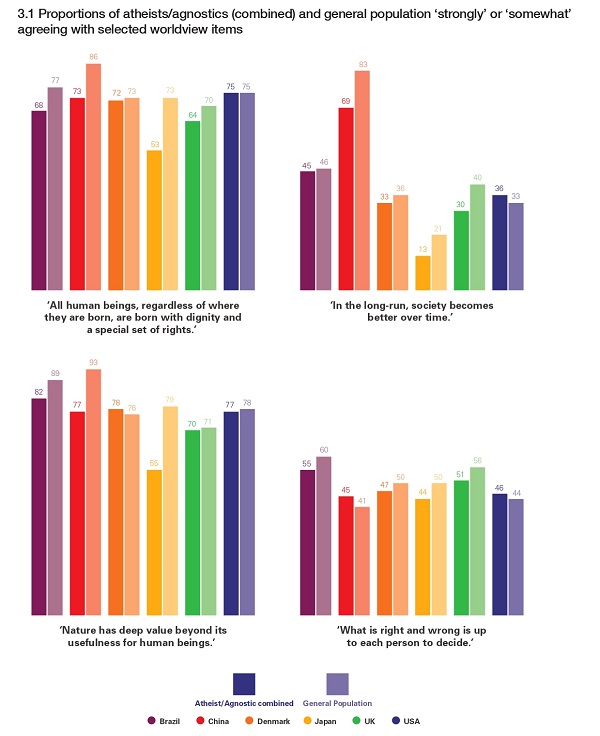
As It Turns Out, Anti-Atheist Stereotypes Aren’t True
- By Alison Lesley --
- 01 Jun 2019 --

Understanding Unbelief: Research presented at the Vatican
Research regarding atheist individuals was presented at the Vatican, and it revealed that the religious community’s ideas and stereotypes about atheism are wrong.[/tweetit] The study was conducted out of the University of Kent and was funded by the Templeton Foundation, one that is known for taking a pro-religious approach.
As It Turns Out, Anti-Atheist Stereotypes Aren’t True[/tweetthis]
The study was conducted in the United States, UK, Japan, China, Denmark, and Brazil, and the results portrayed a large group of people from various places. The cultural influences of not being religious, as well as the social issues, could be seen in how the non-religious individuals referred to themselves.
According to the information from the first round of studies, the screaming atheist that is often pictured by religious groups is not entirely accurate. Most of the people that churches would call “atheist” don’t even refer to themselves that way. The study found a mixture of terms from their respondents such as Non-religious, Humanist, Agnostic, Secular and other terms associated with “atheists.”
Now, another major issue that religious individuals have with atheists is thinking they have no morals. The study asked individuals to respond to specific phrases such as “All human beings, regardless of where they are born, are born with dignity and a special set of rights.” The interesting part was the morality of atheists and theists were practically the same for these questions, ultimately showing that atheists aren’t ticking time bombs without respect for life, or however else they are characterized.

A final major point of contention between atheists and theists is that atheists are often characterized as being smug about their beliefs while Christians and other religious individuals are referred to as “faithful.” The connection between these two is the surety in their beliefs based on faith or the limits of proof that are available. However, the study found that each group exhibits almost the same level of certainty with their faith compared to others. In other words, the snarky, smug atheist really is no different in their belief than a religious person.
All in all, there are a lot of stereotypes about atheists, and many of them have been contextualized and disproved by this study. Perhaps the fact it was presented at the Vatican could lead to mutual understanding between the groups.
Wow: Vatican event reveals a study showing anti-atheist stereotypes are wrong. Nonbelievers have purpose, values. "These findings show once and for all that the public image of the atheist is a simplification at best, and a gross caricature at worst." https://t.co/AYqASKTdQl
— David Niose (@ahadave) May 28, 2019


















